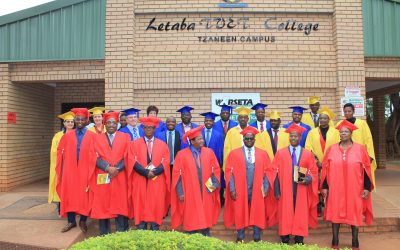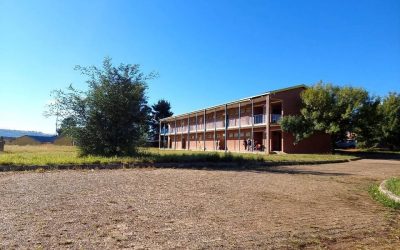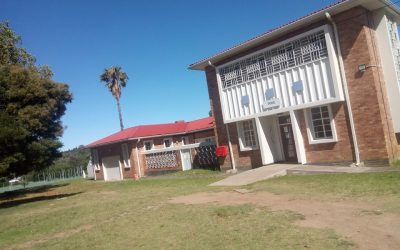Now, if you’re wondering about the Universities in South Africa where you can study as an international student without worrying too much about the cost, these universities discussed in this article should be on your radar. They offer quality education while keeping tuition fees low.
Why Study in South Africa?
For many international students, South Africa offers not only quality education but also the chance to experience a country rich in culture, history, and opportunity. However, for students from poorer backgrounds—whether international or local—the affordability of studying here makes all the difference. Here are some key reasons why you should consider studying in South Africa.
- Affordable Study Abroad Option: Compared to Europe, the U.S., or Australia, where tuition fees can be overwhelming, South Africa offers internationally recognized degrees at a fraction of the cost. This makes it accessible to students who may not have the means to study in more expensive countries.
- Diverse and Inclusive Culture: Studying in South Africa isn’t just about attending classes—it’s about immersing yourself in a multicultural society. The diversity here helps international students feel less isolated, as the nation is a melting pot of cultures, languages, and backgrounds.
- Cost of Living: From rent to food and transportation, living expenses in South Africa are lower than in many Western countries. This can greatly reduce the financial strain on students coming from less privileged backgrounds.
- University Support Systems: Many South African universities are aware that students, especially international ones, might face financial hardships. Institutions often have programmes, such as subsidized meals, affordable accommodation, and academic resources, to support students with limited means.
Check out – Top 10 Distance Learning Universities in South Africa
List Of Cheapest Universities in South Africa for International Students
If you’re trying to make the most of limited funds, choosing a university with affordable tuition fees is key. Below is a List Of Cheapest universities in South Africa for international students:
- University of the Western Cape (UWC)
Known for its strong emphasis on social justice and community empowerment, UWC is one of the most affordable universities, with tuition fees for international students starting at around R25,000 per year. - Nelson Mandela University (NMU)
Situated in the beautiful coastal city of Gqeberha, NMU offers lower tuition fees compared to many other universities, with rates beginning at approximately R30,000 per year. - University of Fort Hare (UFH)
Historically significant for producing many of Africa’s political leaders, UFH is one of the least expensive institutions, with tuition fees starting at about R20,000 per year. - University of Zululand (UniZulu)
UniZulu provides affordable education, especially for students interested in science and humanities, with fees of around R23,000 to R30,000 annually. - Cape Peninsula University of Technology (CPUT)
CPUT offers vocational and technical programs at accessible rates, starting from R25,000 per year. - Durban University of Technology (DUT)
Located in one of the country’s most affordable cities, Durban, DUT offers lower fees and a wide range of technical courses, making it ideal for budget-conscious students. - Tshwane University of Technology (TUT)
With tuition starting from R20,000, TUT provides great opportunities for students in fields like engineering and technology. - University of Limpopo (UL)
A rural-based university, UL offers some of the lowest tuition fees in South Africa, beginning at R18,000 per year. - Vaal University of Technology (VUT)
VUT focuses on providing affordable education in technology and applied sciences, with fees starting at about R22,000. - Sefako Makgatho Health Sciences University (SMU)
If you’re interested in health sciences, SMU offers some of the most affordable programs, with tuition fees ranging from R30,000.
A Breakdown of Tuition Fees
If you’re from a poorer background, knowing how much you’ll pay before you start is crucial. South Africa’s universities offer relatively affordable tuition fees, but there’s still a need to plan ahead, especially if you have limited funds:
- Undergraduate Programs: For most courses, international students can expect to pay between R20,000 and R70,000 per year, depending on the field of study. Programs in the arts and humanities are often cheaper, while science, engineering, and medical courses tend to be on the higher end.
- Postgraduate Programs: Tuition for postgraduate studies varies depending on the degree. While master’s degrees are often more expensive than undergraduate programs, universities like the University of Fort Hare and the University of Zululand provide relatively affordable options for advanced degrees.
- Cost of Living: While tuition is important, the cost of living can’t be ignored. Fortunately, South Africa offers one of the most affordable student living environments. You’ll need to budget for accommodation (around R3,000–R8,000 per month), food, and transport, but these costs are much lower than what students face in Europe or North America.
- Financial Planning: If you’re from a financially struggling household, it’s essential to make a detailed budget, considering tuition, rent, food, transport, and personal expenses. Cutting down on luxuries, living in shared accommodation, and cooking your meals can help you stretch your funds.
Scholarships and Financial Aid Options for International Students
For students who can’t afford to cover their expenses outright, scholarships and financial aid become a lifeline. While South Africa may not offer as many scholarships as wealthier nations, there are still valuable opportunities to explore:
- Mandela Rhodes Scholarship: This is a highly competitive scholarship for postgraduate students across Africa. It covers tuition, living expenses, and other costs for the duration of the degree.
- MasterCard Foundation Scholarship: Available at certain universities, including the University of Cape Town, this scholarship supports academically talented students with demonstrated financial need.
- University-Based Scholarships: Some universities, such as the University of Pretoria and the University of KwaZulu-Natal, offer bursaries for both local and international students. These scholarships are often based on academic merit or financial hardship, so students from poorer backgrounds should apply early.
- Work-Study Programs: Some universities allow international students to work part-time on campus or within the local community to help fund their studies.
Read: Universities with Free Online Application In South Africa
What Else Should You Budget For?
Living costs in South Africa are generally affordable, but students need to be prepared to manage their budgets carefully. Here’s a breakdown of common expenses:
- Accommodation: University residences tend to be cheaper, with rooms costing between R3,000 and R6,000 per month. Private off-campus rentals can be more expensive, so it’s often best to stick with on-campus housing, especially if you’re on a tight budget.
- Food: Cooking your meals is one of the best ways to save money. If you avoid eating out frequently, you can get by with around R1,500–R2,500 per month for groceries.
- Transport: Public transport is generally affordable, especially in smaller towns. In big cities like Cape Town or Johannesburg, students spend about R500 to R1,000 monthly on buses, taxis, or trains.
- Personal Expenses: Beyond rent and food, you’ll need to budget for things like internet access, stationery, and social activities. You can get by with about R1,000 to R1,500 per month if you live frugally.
Studying in South Africa can be a transformative experience for international students on a budget. South Africa offers high-quality education without the financial burden of more expensive countries. Making academic dreams come true for students from poorer backgrounds.
If there are any institutions you believe should be included in the list of the cheapest universities in South Africa for international students, please feel free to mention them in the comment section.











